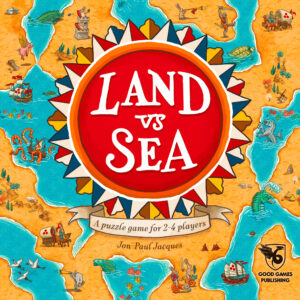 Ketchup vs. mustard. Skiing vs. snowboarding. Purses vs. handbags. Soft shell vs. hard shell. Unicycles vs. bicycles. Flip flops vs. sneakers. These age-old contests have left generations of people pondering which side should be victorious. (Except the unicycle/bicycle one. That’s a no-brainer victory for the unicycle. I’m also partial to handbags, but I’m willing to hear opposing viewpoints on that one.)
Ketchup vs. mustard. Skiing vs. snowboarding. Purses vs. handbags. Soft shell vs. hard shell. Unicycles vs. bicycles. Flip flops vs. sneakers. These age-old contests have left generations of people pondering which side should be victorious. (Except the unicycle/bicycle one. That’s a no-brainer victory for the unicycle. I’m also partial to handbags, but I’m willing to hear opposing viewpoints on that one.)
Well, the new design from Jon-Paul Jacques looks to give gamers a chance to settle another long-running feud. In Land vs Sea players can finally find out which of those two deserves the title of Best Terrain Type. (I have to be honest: I had no idea this was a rivalry until the game arrived at my house.)
Land vs Sea is for two players with additional rules that can expand it up to four and plays in about 40 minutes.
Gameplay Overview:
Land vs Sea is a puzzle game that is best with two players. Players play as either land or sea and work on a shared grid of hexagonal tiles. These tiles all feature sea and land segments in various configurations.
Players will add one tile to the map on every turn and then refill their hand to two tiles. There are very few restrictions about where tiles can be placed and either side can finish any type of terrain section. These tiles are double-sided and only after players have acquired a tile are they allowed to see the underside. This design quirk allows for some hidden information throughout the game. Hiding a more useful tile and breaking it out at the most opportune moment can really impact the game.

Many of the tiles also feature one of two special symbols:
• a steal icon that allows players to take one of their opponent’s tiles from in front of them
• a play again icon that, allows players to play again by adding a second tile to the map during their turn.
Many of these tiles also have an “X” icon on either the land or sea segments that I’ll explain a bit more about later.
The game is played this way back and forth until either a land or sea area is completely finished with no further ways to expand upon it. Once this occurs, both players will score points equal to the number of tiles that contributed to the completion of that segment. (Counting is one of my less-developed skills so this was probably the hardest part of the game for me. Lousy public-school education…) The land player will always score points for the land tiles in this area and the sea player will do the same for their contributing tiles. It doesn’t matter what type of terrain section was just finished. The main difference in scoring is that only the player who completes the area will get the bonus points accumulated on those special “X” icons throughout the completed section of terrain.
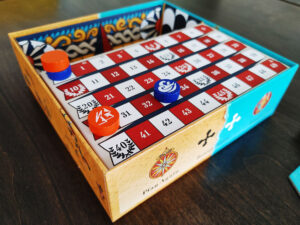
The game also includes a few variants that allow players to scale up the game to four players using a team mode as well as a three-player mode that casts one player as something of a neutral figure in the land vs. sea battle. (While we’re on the topic: Why do the land and sea hate each other in the world of this game? Is there some backstory that I’m missing? Should I have read the rulebook? And just where does Sky land in this conflict?) The three-player variant is a bit more involved and works pretty well, while the four-player team game was just okay. The two-player game also has advanced modes where certain terrain pattern types score bonus points.
That’s the general gist of how Land vs Sea plays. Once the last terrain tile is placed, whoever has the most points is declared the winner and gets to rule the other terrain for all eternity. (I think. Again: I didn’t read the rulebook.)
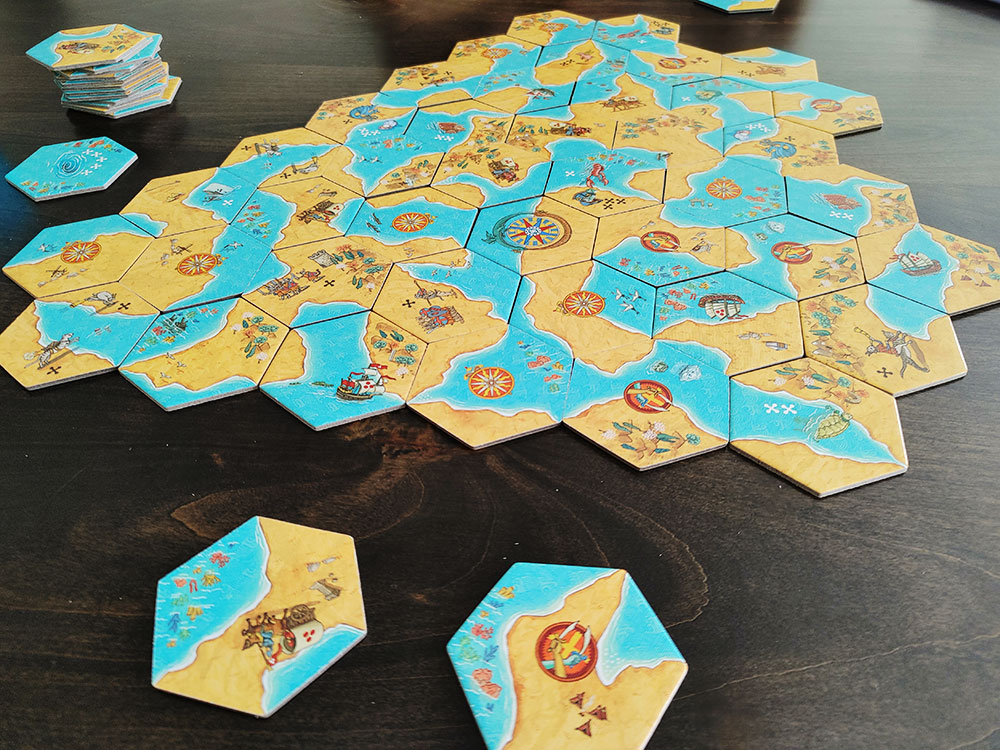
Game Experience:
Land vs Sea is the type of game that builds upon mechanisms that are so ingrained in modern board gaming that reading the rulebook almost feels unnecessary. Most gamers will know exactly what strategies might be most effective before the game even begins. What turns this on its head is the fact that players have no choice but to help their opponent throughout the game because of the way the two terrains are intermingled on the tiles. It becomes something of a double spatial puzzle.
Not only is it imperative to be concerned with the best way to finish off one’s own areas, but players also need to be aware that sometimes closing off an opponent’s terrain is beneficial because of the bonus points or how it sets up an upcoming turn.
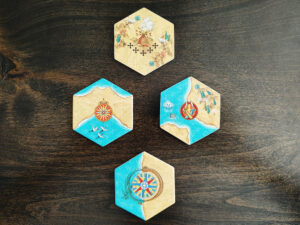
The concept of hidden tile information is interesting but in my plays it wasn’t that big of a factor since technically you can’t choose which side to keep hidden anyway. I’m not saying I necessarily wanted that to be the case, but players are forced to keep the side that was already face down a secret so it’s not as though someone can necessarily hide specific information from your opponents. Whatever was already hidden stays hidden to them. (This is a nitpicky gripe, but the rulebook is very excited about this design gimmick, so I figured it was worth pointing out.)
Another issue I had with the game is that it plays incredibly fast at the beginning but tends to stall out at the three-quarter mark. There are a lot of tiles to place (56 of them, in fact) and that makes the puzzle pretty expansive as the game goes on, which obviously increases the number of locations for placement and makes certain terrain areas much more difficult to close. It’s never quite boring as it progresses to the later stages, but the climax of the game isn’t as exciting as the rapid-fire early turns. This is exacerbated when playing the most basic version of the ruleset, which might be how most people play this game.
Final Thoughts:
I have a complicated relationship with puzzle games. I enjoy them but I’m not very good at playing them because often they require the ability to plan out spatial moves many turns in advance. The half-hidden nature of Land vs Sea cuts into this long-term planning a bit and that makes the game more of a tactical puzzle than games with a similar concept. I suspect if puzzle games are your preferred type of game, then this one will have plenty of legs once you mix in the scoring variants and really become familiar with the best ways to manipulate the tiles and bonus scoring options.
Final Score: 3.5 Stars – Land vs Sea is a simple, well-executed idea that will easily scratch the tactical itch for puzzle loving gamers.
 Hits:
Hits:
• Few rules to worry about
• Builds on existing mechanisms nicely
• Easy to play
Misses:
• Even with variants the game can be a bit repetitive
• Four player version feels tacked on







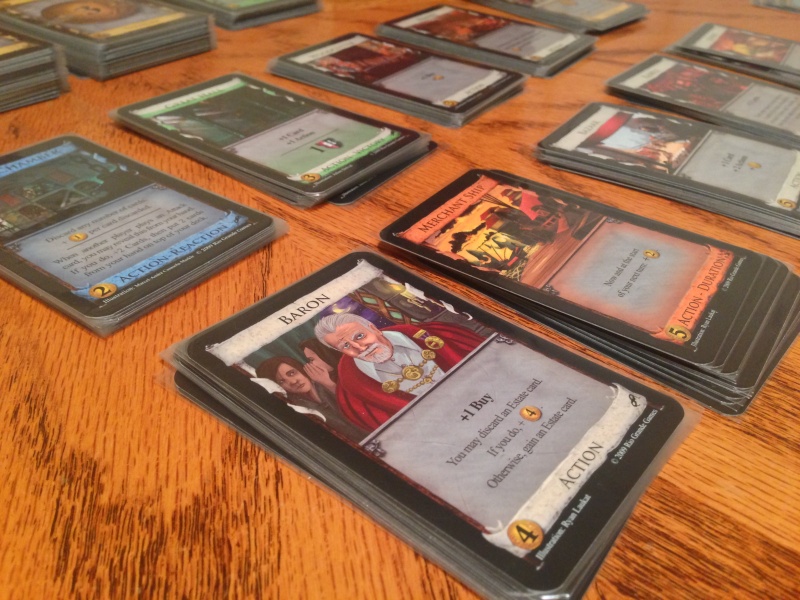
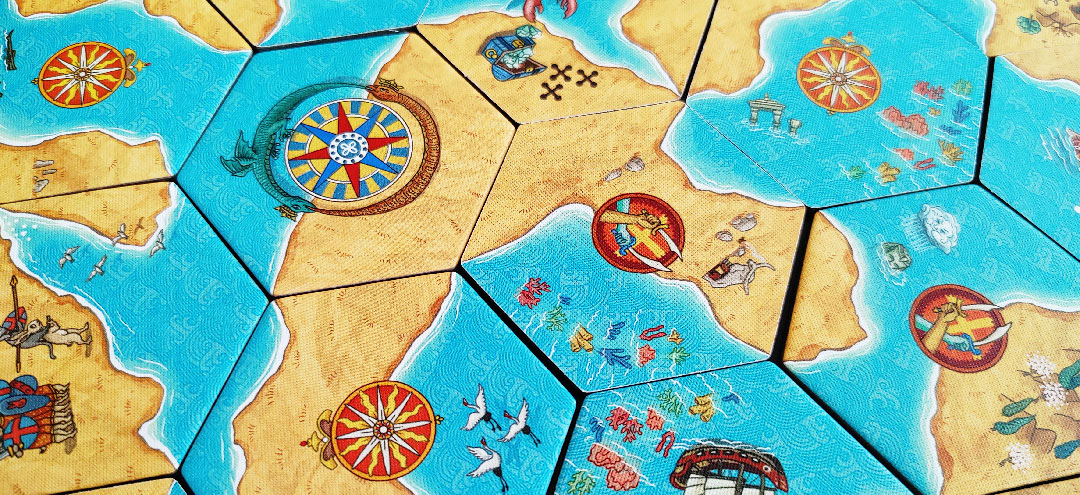















Interesting. I love a good strategy game as much as the next guy, but I think we all know how easy it is to make a bad strategy game. I might have to check this one out, as it kinda sounds like Catan, which I’ve never really been a fan of, but also kinda sounds like Risk, which I’ve always loved. This game could “calibrate” exactly where I stand on this.